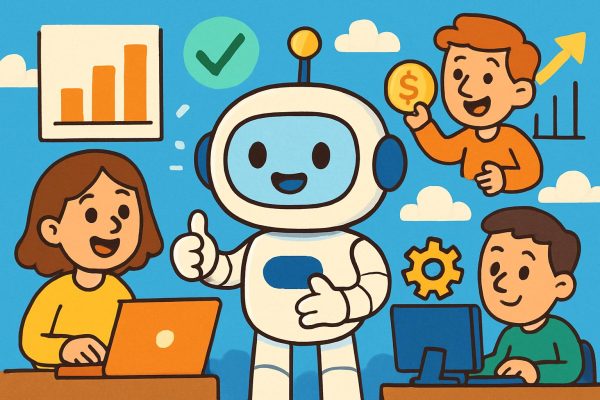Love has always been shaped by culture, experience, and chance. But what happens when algorithms begin to meddle in matters of the heart? As AI starts to analyze compatibility, simulate emotions, and even build connections, are we enhancing intimacy—or redefining it altogether?
Affection AI: Algorithms Have Begun To Reshape Human Love, published on Forbes, examines how artificial intelligence is changing the way humans experience love and emotional connection. It looks at the influence of technology on relationships, from AI-powered dating tools to emotional virtual connections, offering a new perspective on what love might look like in the digital age. As artificial intelligence takes on a more personal role in matching, engaging, and even supporting partners, the article offers insight into both its opportunities and possible effects on human relationships.
AI platforms not only improve matchmaking through advanced algorithms that analyze compatibility but also explore emotional experiences. Technologies like affective computing and emotional AI companions are designed to recognize and respond to emotions, while tools like virtual environments and emotion-sensing avatars are changing how people communicate, especially in long-distance relationships. These advancements provide new possibilities to strengthen connections and improve relationship satisfaction, yet they also challenge traditional ideas about authenticity and emotional development in relationships.
While there is potential for growth, the integration of AI into romantic and emotional life raises several questions. The author emphasizes the balance between enhancing connections through technology and preserving the human aspects of love, particularly vulnerability and spontaneity. At its heart, the article underlines the importance of using AI as a supportive element while remaining aware of its possible effects on the deeply personal and imperfect nature of human intimacy.
Why It Matters
As AI takes a more active role in shaping human emotions and relationships, it raises complex ethical and psychological questions. The ability to predict compatibility, simulate empathy, and influence emotional responses could change society’s approach to connection and attachment. At the same time, these advancements might lead to over-dependence on technology for emotional support, limiting opportunities for personal development and the growth of interpersonal skills. By understanding these shifts, society can better navigate the changing dynamics of love and intimacy.
Benefits
Technology offers many practical applications in this area. For individuals who struggle with traditional socializing, such as those with social anxiety or certain neurodivergent conditions, AI-driven tools can create pathways to meaningful connections and provide a safe space for social growth. Couples using virtual environments report greater satisfaction, showing the potential for AI to strengthen bonds across distances. Additionally, personalized AI tools can increase self-awareness, helping individuals and couples understand their patterns and grow in their relationships.
Concerns
AI’s role in influencing love and connection isn’t without its challenges. An over-reliance on technology may suppress the development of vital emotional skills, such as navigating conflict or reading subtle social cues. The commercialization of love through optimized algorithms and digital companions risks creating interactions that feel unnatural, diminishing relationships of their depth and sincerity. It’s necessary to ensure that technology complements, rather than replaces, genuine human vulnerability and the unpredictability that promotes growth.
Possible Business Use Cases
- A platform that pairs couples’ data insights with counseling services, offering AI-supported relationship advice to deepen understanding and resolve conflicts.
- An AI-assisted virtual reality service for long-distance couples to create shared digital experiences, from movie nights to interactive games.
- A personalized emotional fitness app that tracks user behavior and communication, providing exercises to enhance empathy, listening, and conflict resolution without replacing human input.
As AI continues to adjust the way we relate to each other, it presents an opportunity to thoughtfully enhance connections while remaining mindful of the potential risks. By addressing the balance between technology and human experiences, society can adopt these tools to improve — not undermine — the very qualities that make relationships meaningful. The power remains in choosing when and how technology can act as a connection, rather than a substitute, for the deep and complex emotional bonds that define us.
—
You can read the original article here.
Image Credit: GPT Image 1 / Vintage Postcard. Make a custom style AI image HERE!
—
I consult with clients on generative AI-infused branding, web design, and digital marketing to help them generate leads, boost sales, increase efficiency & spark creativity.
Feel free to get in touch or book a call.




